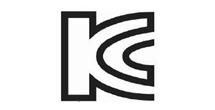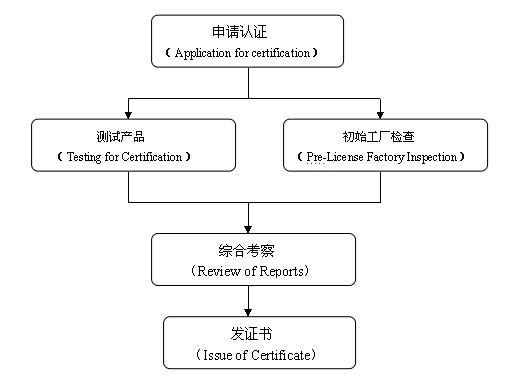Korean KC Certification Introduction
In order to enable consumers to better understand the certification marks on the products purchased and to reduce the various certification costs borne by product manufacturers, in July 2009, the Korea Ministry of Knowledge and Economy(MKE) began to implement and adopt the National unified KC certification mark, Called the "KC Mark" logo, the new logo represents Korea Certification, and the current 13 mandatory flags in Korea will also be unified under this new logo. One result of this initiative is to reduce vendor expenditure on certification costs and make Korean KC Mark gradually become a world brand certification.
KC authentication logo 
KC Certified Product Catalogue
According to the "Korean Electrical Products Safety Management Law," the electrical products safety certification since January 1, 2009 is divided into two types: mandatory certification and self-regulatory(voluntary) certification.
Mandatory certification means that all electronic products that belong to mandatory products must be certified by KC Mark before they can be sold on the Korean market. Each year, they need to undergo factory review and product sampling tests.
Self-regulatory(voluntary) certification means that all electronic products belonging to voluntary products only need to be tested for certification and do not need to be subject to factory review. The certificate is valid for 5 years.
Product certification range: Electrical products with input voltage between 50-1000, According to the IECEE classification method, it includes wire cables, electrical switches, capacitors and power filters, home insulation Transformers, power tools, household appliances, etc., electronic entertainment and information technology equipment(IT), etc..
KC Certification Data Preparation
When applying for KC certification for new products, the following documents are required:
1, application;
2, factory questionnaire;
3, manual;
List of parts and components;
5, derived model list;
6, circuit diagram;
7, parts specifications;
8, labels;
9, product photos;
10, spare parts distribution chart or photo;
11, the agent appoints the authorization;
12, application for change of content;
Information that the applicant needs to keep;
Other: Some documents that record electrical characteristics.
The following commentary:
A, application for safety certification of electrical appliances(mandatory products), application for self-regulatory safety confirmation of electrical appliances and declaration of self-regulatory safety confirmation of electrical appliances(self-regulatory products);
List of parts and components that directly affect safety;
C, electrical circuit diagram;
D, Transformer detailed specifications(related products);
E, catalogue of insulating materials(temperature, compressive properties or grade of flammability, etc.);
F, product certificate(including Korean product certificate);
G, labels;
H, agent authorization documents(necessary for mandatory products; It is necessary for self-regulatory products to be applied by agents).
KC authentication process
KC Certification Factory Inspection
South Korea's safety law requires factory inspections after accepting applications. After the certificate authorization, the certification body will also conduct an annual follow-up review of the factory. The main purpose is to see whether the factory's quality control system is consistent and can continue to meet the standards of the safety law.
KC certification cycle
Routine 4 to 6 weeks, can be urgent, plus urgent additional costs.